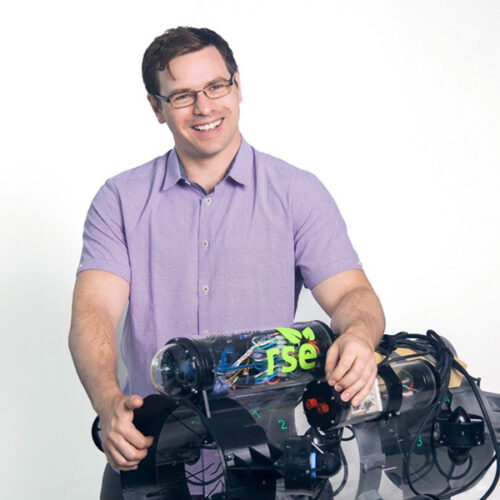Adam Cantor is a career Roboticist and Futurist. The current Director of Engineering at Robots In Service of the Environment, Adam acts as the primary R&D lead for all platforms and innovations. With 10 years of robotics research in intelligent prosthetics, bio-inspired design, swarm theory, autonomous vehicles, and robot mass production; he is responsible for the development of all new technologies leveraged by RSE in it’s mission to defend the natural world. Beginning in 2009 Adam began work in Center for Intelligent Mechatronics at Vanderbilt University in order to implement stumble recovery behaviors into an intelligent transfemoral prosthesis. Gaining an initial taste for bio-inspired algorithms and design, he then worked under a DARPA grant in 2011 to create a micro-aerial flapping wing vehicle based on the flight dynamics of the hawk moth. In 2013 Adam joined the Hu Lab for Biolocomotion where he led a team of students to design and build a scalable swarm of fire ant-like hexopod robots. By improving and integrating a model of fire ant 3D assemblage, Adam was able to prove the robots capable of building self-assembly to conquer new challenges with distributed behaviors. This work was then built upon in 2015 through a partnership with Ford Automotive by adding the Artificial Bee Colony algorithm to simulate and test large scale fleets of autonomous vehicles. Since then Adam has acted as a Senior level engineer at iRobot Corporation simultaneously as Director of Engineering for Robots in Service of the Environment, driving technological innovation at large scale for consumer robots in the home and in the environment.
Growing up in New Orleans, Louisiana, Adam is now living in Boston, Massacheusetts. He earned his bachelor’s degree in mechanical engineering from Vanderbilt University, and a master’s degree in mechanical engineering from Georgia Institute of Technology. Adam volunteers his time to a variety of environmental causes, and what time remains on wildlife education efforts and physical fitness.
